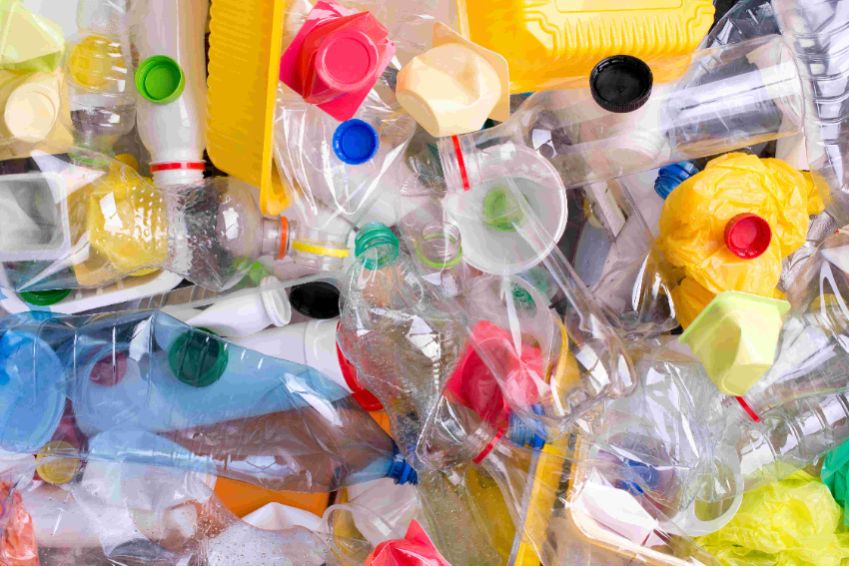A healthy recycling value chain is essential to solve the challenge of plastic pollution in Europe. And EU policies must help make this happen. It is in the hands of policymakers to ensure that the Packaging and Packaging Waste Regulation safeguards the competitiveness of the EU plastic recycling industry and the objectives of the EU Green Deal. The urgent need for action has been confirmed in a recent issue brief based on a 2023 study. It warns that less or no investments in the EU’s recycling systems would lead to European greenhouse gas emissions more than doubling by 2040, as more waste would be incinerated or landfilled rather than recycled. The study also shows that the PET recycling rate would fall to between 32% and 38% by 2040, compared to the estimated 67% in the circular scenario.
Getting policy right
The PPWR is set to put in place the much-needed harmonization of recycling and plastics manufacturing practices across EU Member States, bringing in investments, contributing to advancing plastics circularity and safeguarding the EU Green Deal’s environmental objectives. The latest developments in the PPWR trilogues are, however, driving away the initial optimism.
Allowing the use of post-consumer plastics from outside the EU to meet recycled content targets, together with a lack of control and verification mechanisms would negatively impact an already shrinking and threatened market.
Allowing the use of post-consumer plastics from outside the EU to meet recycled content targets, together with a lack of control and verification mechanisms would negatively impact an already shrinking and threatened market. Although the legal framework set up by the EU initially increased the demand for recycled European plastics, now EU recyclers are losing competitiveness vis-à-vis companies from third countries, whose production processes are not subject to the same standards and can, therefore, afford to sell their products much cheaper.
Imports of self-declared recycled plastics are currently not verified or verifiable, and this lack of traceability compromises the trustworthiness of the recycled plastic products placed on the EU’s single market. Therefore, policymakers must include control and verification mechanisms, such as third-party audited certifications, for imported plastic recyclates in the PPWR. This should be coupled with a regional circularity perspective and the so-called proximity principle – where waste is managed as close as possible to its place of production.
This would allow the PPWR to stay in line with the EU Green Deal’s environmental objectives, as it would put forward a solution to the harmful environmental implications of rising imports. Every kilogram of recycled content imported to meet targets results in a kilogram not getting recycled in the EU but exported to third countries where it ends up being landfilled or incinerated. This results in an increase in greenhouse gas emissions, as well as severe pollution of the ecosystems surrounding landfills.
The status quo of recycling capacities
Some believe that there will not be enough recycling capacity in Europe to meet the targets and, therefore, consider recycled plastic imports necessary. These claims, however, fall short of the current situation, as the total installed recycling capacity of the European plastics recycling industry increases year-on-year, standing at 12.5 million tonnes in 2022. Additionally, some waste streams are already clearly on the path to meeting EU targets. For instance, data from 2022 indicates that there shall be sufficient recycling capacity of rPET at the EU level to meet recycled content SUPD targets of 25% by 2025.

However, further action and investments in collection systems will be needed to keep the recycling industry up to speed with the upcoming targets. Continuing with the example of PET, this market, in fact, currently faces overcapacity, with not enough waste available to be fed back to recyclers. The change in the definition of post-consumer plastics in the PPWR will most likely put these developments on hold as it will not encourage investment in the European recycling value chain.
Environmental targets and EU green jobs under threat
The critical situation of the plastics recycling sector reflects the general context in the European Union’s industry: a worrying lack of competitiveness in a geopolitical landscape where not all countries play by the same rules, and environmental targets that will not be achieved without further legislative action.
Europe is positioned for global leadership in the transition to a circular economy with the adoption of ambitious targets under the long-awaited PPWR. But it cannot become the “holy grail” the industry was waiting for unless policymakers bring solutions to the table. It is crucial to give legal certainty to the entire European plastic recycling value chain by creating a level playing field between domestically recycled content and imports of recyclates from non-EU countries accounting for meeting recycled content targets. Together with this, regional circularity must be the approach to follow if the PPWR is to secure EU green jobs and meet the ambitious environmental targets of the EU Green Deal.
One of the main objectives of the revision of the PPWD was to make all the packaging on the EU market recyclable in an economically viable way by 2030, which will not happen if companies do not have enough legal certainty to invest. What is more, the Plastic Strategy is about “transforming the way plastic products are designed, produced, used and recycled in the EU”, an objective that should stay on top of policymakers’ agendas.
EU institutions must act now to ensure a plastic recycling value chain that fosters circularity, provides EU citizens with safe recycled products and is resilient enough to face international competition.
Sign up to The Parliament's weekly newsletter
Every Friday our editorial team goes behind the headlines to offer insight and analysis on the key stories driving the EU agenda. Subscribe for free here.